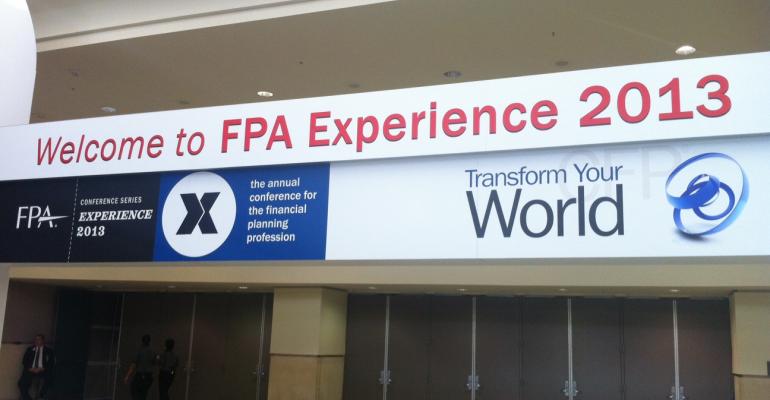While the U.S. is not facing a ban on commissions, several other countries have already done away with the compensation model, and the change has had a significant impact on the advisor industry in these countries, including a drop in the number of advisors in some countries. During the Financial Planning Association’s annual FPA Experience conference in Orlando, Fla. on Sunday, international planners provided a look into a world without commissions.
Regulators in the Netherlands banned the use of commissions in January 2013, and since then, the number of advisors have dropped 20 percent, said Dr. Jelle van den Berg, a lecturer with the Erasmus University Rotterdam. Advisors are getting out of the business for economic reasons—either their firm has gone bankrupt or they’ve been fired. Many have simply retired, he said.
Under the fee structure, advisors have to serve more clients for it to be profitable, van den Berg said. Some advisors are charging a monthly fee, but advisors have to do periodic updates for their clients if they go with this compensation structure. Others are charging an hourly fee of around 75 euros, while some advisors are charging a fee-per-product, such as 2,000 euros for a mortgage. But clients resist paying anything over 2,000 euros, he said.
The United Kingdom also banned commissions on investment products or pension products in January 2013, although advisors can still receive trail commissions on existing accounts, said Carole Nicholls, a financial planner with Nicholls Stevens Financial Services. The country has also put in place higher qualifications to become a financial planner.
In the last 10 months, the total number of advisors has slipped 20 percent, while the number of bank advisors has declined by 40 percent. Banks have removed themselves from advice for the most part, Nicholls said, because it’s too expensive to train advisors on the new regulations. A number of banks have also been subject to regulatory fines for mis-selling insurance products.
Many advisors have simply replaced the word “commission” with “fee.” So instead of sayng they’re taking 3 percent up-front and 0.5 percent in commissions, they say that they’re taking a 3 percent up-front fee and 0.5 percent fee. But regulators are catching onto that, Nicholls said. They issued a paper saying that advisors have to disclose fees in monetary terms.
Nicholls said the changes have cost quite a lot, especially with the creation of new share classes that don’t have platform and advisor fees. She has had to hire a full-time person just to handle all the changes. “This is just money down the drain,” she said.
But Nicholls believes more regulation is on its way in the U.K., and she expects more advisors will fail. Advisors aren’t getting the cash flow that they were used to with up-front commissions, and they are not very good business planners.
In India, front-end commissions went from 2.5 percent to zero in 2009, said Lovaii Navlakhi, a planner in India. As a result, many mutual fund agents become life insurance agents. Other financial planners have gone out of business because they just aren’t profitable, and haven’t been able to adapt, he said. And the regulators haven’t provided any long-term roadmap for advisors.
International planners make up 1.5 percent of FPA's total membership, but 15 percent of this year's annual conference attendance, said Michael Branham, FPA 2013 president.





